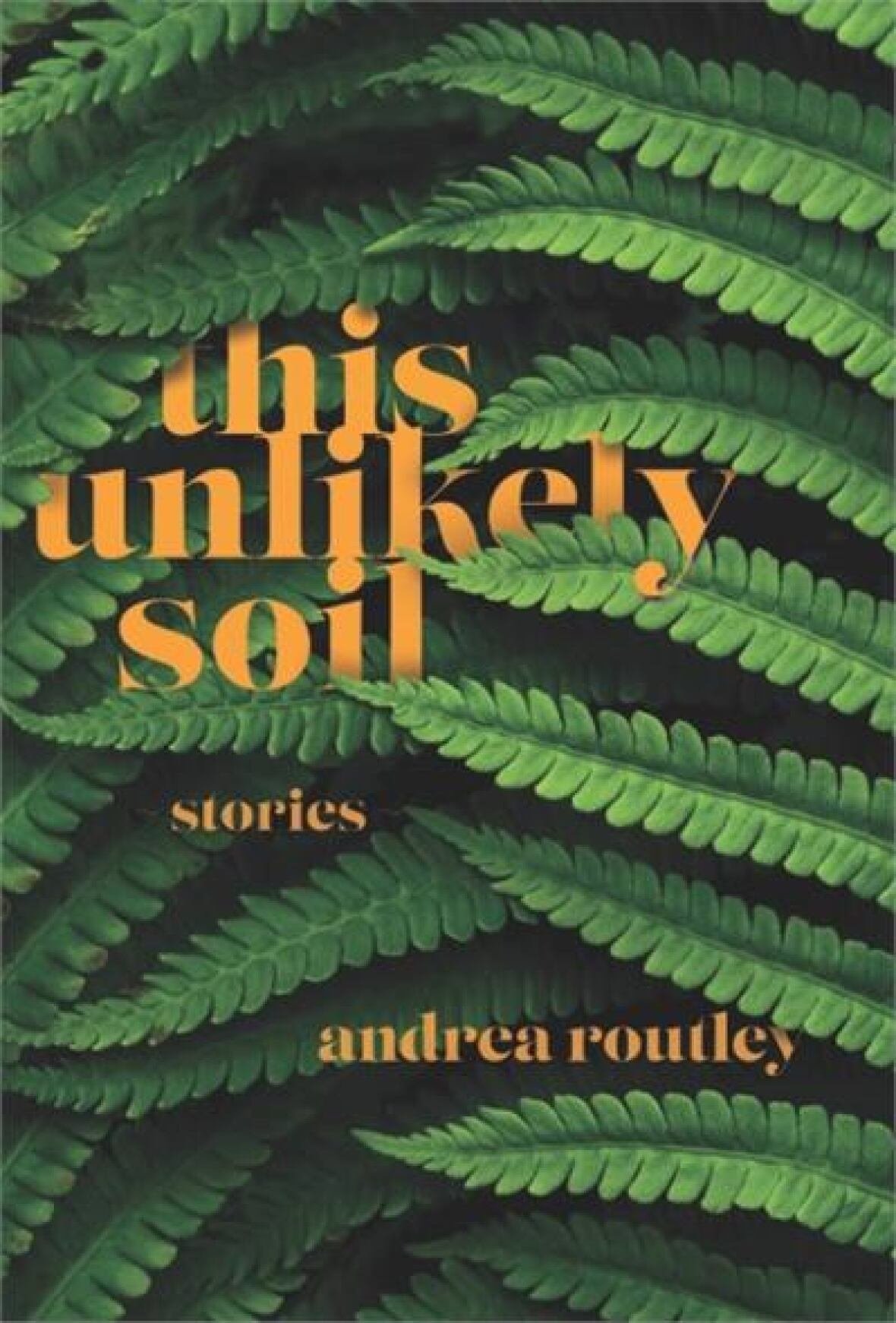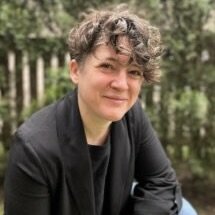From issue 2.3 March 2023 of Girls to the Front!
A mini review and “Why I Wrote This” for Andrea Routley’s This Unlikely Soil
Andrea Routley described her book of five novellas, This Unlikely Soil, to me as being “very West coast, and very queer.” And, unsurprisingly, it is! This book is as West coast as its choruses of frogs, its intentional communities, its neighbours named Willow who weave “stiff satchels made of kelp,” and its flood damage. And its queerness is present on every page, especially of the final four novellas. Each of these works are quiet and introspective, and Routley’s characters are all sympathetic. Right away, I felt immersed in the book, as though all of these characters were my close friends. What I loved most of all in this book is how Routley circles around and questions romantic relationships—the subtle areas where things between two people can begin to go horribly wrong. I found it especially interesting to see her examination of how gender roles haunt even lesbian relationships. No sexual encounter is untouched by the patriarchy, by the damage that unchecked male desire has done. In “Damage,” for instance, Rita, a woman struggling to take control over her own life, is empowered by wearing a dildo around the house. She fantasizes about taking her girlfriend against the wall and denying apologies. She takes up space she ordinarily wouldn’t. This book is thoughtful, satisfying, and powerful, and I’m so glad it came my way.
Why I Wrote This Unlikely Soil
by Andrea Routley
I wrote This Unlikely Soil during the seven years I lived on the Sunshine Coast. When you live in a small community, you must learn how to get along—whether you want to avoid someone or not, you’re inevitably going to run into them, at the IGA or the mailboxes or the library . . . and if you’re queer, then you’re living in a small town within a small town. I’m interested in parsing these interpersonal conflicts, in coming to know the underlying narratives that inform our behaviours, the degree of denial that clouds so much understanding between people. This is one of the reasons I love an omniscient point of view or alternating points of view, or sometimes even just that one surprising shift in point of view, to get another perspective, to reframe everything that’s preceded that moment.
With my previous collection, Jane and the Whales, each story was simply an attempt to write a good story. With This Unlikely Soil, after drafting a few stories, I did consider how they might work together. I have another novella that I left out, for example, as I didn’t feel the relationship it explored tied in resonantly with the other stories. And I wrote “Midden,” a sequel to “Damage,” because I felt the voice of that protagonist, Naomi, was missing from the story.
With this book, I also wanted to write more explicitly queer characters—all the protagonists are queer women. This was less often the case when I first began to write seriously, and it was something of a revelation at one point that I had been avoiding writing queer characters in my work. Now it seems all my writing features queer protagonists, whether I’m working in fiction or another genre/mode. So I think all my writing inevitably reflects the world(s) I inhabit—small town, queer, nature. I have been spending a lot more time in Vancouver recently, though, and going out for steak in Yaletown and buying expensive shoes that I will show off at the reading. But then I guess this is reflected in my current screenplay project, which is a queer, playfully sexual comedy-drama set in Vancouver.
Andrea Routley is the 2023/23 Haig-Brown House Writer-in-Residence. Her work has appeared in literary magazines such as Geist and The Fiddlehead. In 2020, the title story of her new collection, This Unlikely Soil (Caitlin Press, 2022) was shortlisted for The Malahat Review’s Novella Prize. Her debut collection, Jane and the Whales was a finalist for the Lambda Literary Award in 2014. She holds an MFA in creative writing from UBC (Okanagan) and is currently at work on her third book of fiction, a novel entitled “Field Guide to Bats and Other Damage”.


